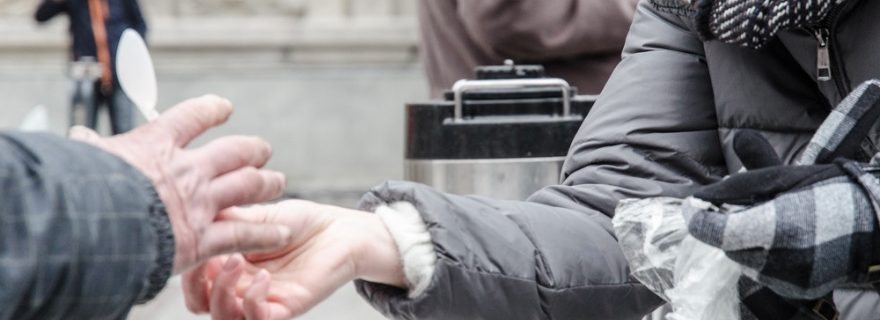Solidarity Networks in Times of Crisis: New Initiatives and Long-term Networks in Gdańsk, Poland
In the context of recent drastic changes and the emergence of novel ways to create and to continue solidarity networks, one might ask whether there is any hope for long lasting societal transformations? Ola Gracjasz reflects on the possibilities for continuing solidarity networks in Gdańsk, Poland.
As of the 20 th of March 2020 there are 367 cases of infections and 5 deaths as a consequence of COVID-19 in Poland. On the 15th of March 2020 the Polish Government closed its borders for a period of ten days. For returning citizens it has implemented border control and an obligatory 14 day quarantine. International air and rail connections are suspended, however cargo transport is still in use making sure that products can come and leave the country.
While public media are speculating whether the government will introduce stricter measures that could severely restrict individuals, the government is urging the public to stay home, regardless of age or health conditions, calling for social and civic responsibility. As a response, many people have entered into self-imposed isolation even if they had no contact with anyone who might be infected. Via social media people are calling for responsibility and solidarity by using topical memes and Facebook profile pictures framed with hashtag #staythefuckhome. As face-to-face contacts become highly restricted, social media is becoming the main means of communication and an important space for local and national mobilization.
Solidarity
In the context of these drastic and abrupt changes, people are acting out novel and innovative types of solidarity. Historically and culturally Gdańsk has been often described as the city of freedom and solidarity. Indeed, the ex-mayor of Gdańsk Paweł Adamowicz has often referred to solidarity as being the city’s most cherished ‘social value’. Now, especially, the reference to solidarity is used for motivating small-scale, city-wide mutual aid initiatives.
As an anthropologist in the field I observe small-scale actions, noticeable both in real life and online spaces. One of the most visible examples is the emergence of a Facebook group called “Visible Hand Tricity” (with more than fifteen thousand members at the time of writing). Its initial purpose was to establish connections in the neighbourhoods and facilitate mutual help. However, as the crisis evolved and started threatening to severely damage public health institutions, the group’s main purpose has shifted to delivering free food to people working in assistance professions - doctors, firefighters, nurses, policemen, soldiers. At the same time there are several city-wide crowdfunding campaigns to buy the necessary equipment lacking in local hospitals or fund meals for the medical staff. Nevertheless, in contrast to the ‘horizontal’ solidarity projects organized by civil society and the air of heroic narrative that they provoke, citizens remain critical of the government approach to the crisis, questioning the use of public money, lack of equipment for medical staff and low amount of tests being done.
Bridging gaps?
Over the last eight months I have been researching solidarity networks in Gdansk. Strikingly, I find a lot of continuity between the current solidarity initiatives and solidarity networks that have built up over a longer period of time. For example, the anarchist initiative Food Not Bombs came up with new solutions to avoid crowds and continue distributing hot meals to the homeless. As closing down all restaurants in the country poses a threat to their survival, the most vulnerable are small and local places, still fresh on the market. Many of those, such as a popular neighbourhood vegan place, are urging their customers to order take-away meals and therefore let them generate income . At the same time they use social media to promote other local places that are facing the same crisis situation. Similarly, other local initiatives with more resources are using their position to openly help out. By making large take-away orders, adding products for free, and promoting it on social media as solidarity action, they also promote themselves. Finally, another popular vegan restaurant of the neighbourhood is sharing sourdough and a bread recipe for free.
To what extent these actions are types of self-advertisement, handling of waste or genuine modes of survival in times of crisis is unknown. However, these are strategies of dealing with a situation that took everyone by surprise and they function as a result of the already existing solidarity networks. It is relevant to ask whether these types of solidarities, in a country strongly divided by political orientations, can bridge the generational, class, and political societal gaps for a longer period of time. Given the scope of the initiatives that were already emerging before the crisis, there is reason to hope a sense of solidarity may continue to shape Gdansk in these uncertain times. However, it would not be the first time that the nation is uniting in the face of crisis only to come back to the old, deeply rooted divisions.
The project ‘Food citizens? Collective food procurement in European cities: solidarity and diversity, skills and scale’ has received funding from the European Research Council (ERC) under the European Union’s Horizon 2020 research and innovation programme (Grant agreement No. 724151).



0 Comments
Add a comment